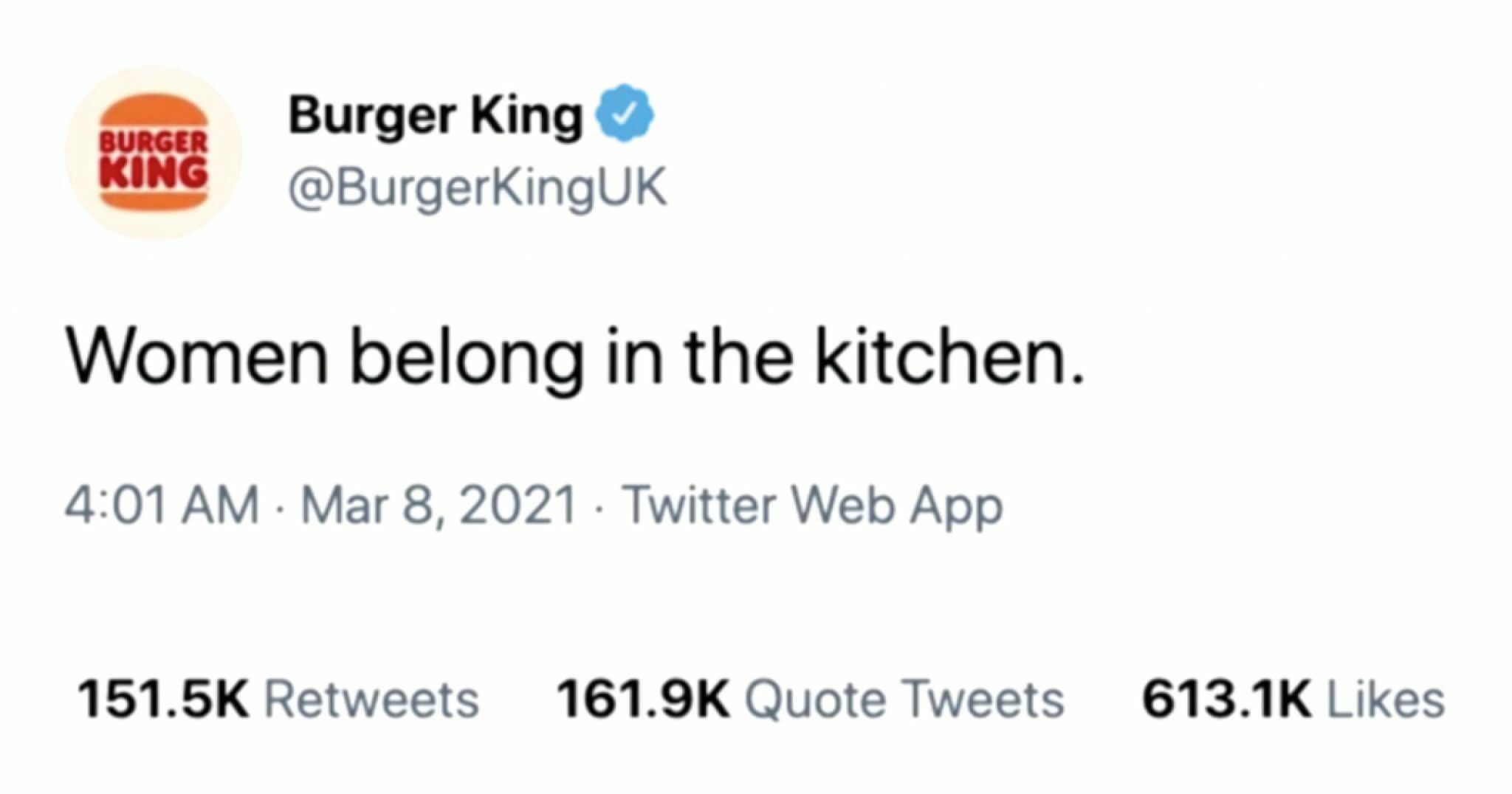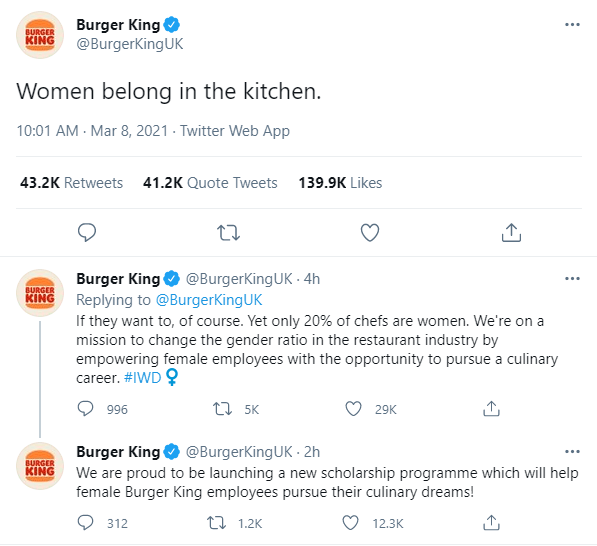Introduction
Over the past weeks, we’ve been talking about what marketers and brands have to keep in mind when communicating to their audiences in 2021. One of the key takeaways from everything we’ve learned so far is that younger generations aren’t afraid to call out brands when they screw up. Enter the Burger King Women’s Day tweet.
The Tweet

Seeing this from a fast food restaurant as you’re scrolling through your Twitter feed is going to trigger two things:
- You’re gonna think/say what the hell?
- You’re gonna click on it to see what people are saying in response, and whether there’s any context you’re somehow missing.
At which point, you’ll realise that you were indeed missing some context.

So to recap, Burger King leveraged people’s instant reaction of outrage to their first tweet in order to build awareness of a new scholarship programme that promotes women’s opportunities in the culinary industry.
There are two main camps when it comes to people’s reaction to this series of events. The first camp is made up of those who see the intentional manipulation of people’s attention through a very inflammatory statement as a big no-no. They see it as yet another big corporation trying to build their brand using clickbaity language surrounding emotionally charged topics to their advantage.
This seems to be the vocal majority, as admonishments came swiftly and harshly. Even from other brands.
There’s better ways to draw attention to something that don’t including using the most sexist trope ever
— Chloé: unicorn of snark ?? (@snarkgrapefruit) March 8, 2021
this is such a weird tweet, how did this get through higher ups
— kira (@YungCatgirl) March 8, 2021
You get the picture.
Burger King originally defended their stance, answering those who opposed their unorthodox method of garnering attention. Eventually, they had to concede that it was doing more harm than good. After an apology-tweet, they took down the original and the subsequent thread.
We hear you. We got our initial tweet wrong and we’re sorry. Our aim was to draw attention to the fact that only 20% of professional chefs in UK kitchens are women and to help change that by awarding culinary scholarships. We will do better next time.
— Burger King (@BurgerKingUK) March 8, 2021
What can brands learn from this?
As the new generations of consumers are coming into their own, brands are understanding that what they do to better their communities is going to help win long-term loyalty. The problem comes when they don’t understand the fine line between just doing good things and talking about doing good things a little too loudly.
In this case, Burger King (who are well known for their great marketing antics) took things a step further than usual with their clickbait tactics. Even though it was ultimately well-meaning, it ended up blowing up in their face.
One might argue that it achieved Burger King’s objective of grabbing attention for their cause, but at what cost? Are people even going to remember what their efforts were? In this particular case, a number of news networks picked up the story, but most of the coverage doesn’t paint a particularly pretty picture for Burger King. There is no doubt that references to this fiasco are going to be a mainstay on their Twitter account for a while.
Although we are bombarded with new information and entertainment, consumers in 2021 don’t forget when brands screw things up very easily, and they’re lightning fast at pointing out discrepancies between what a brand says they’re about, and what they actually do. That said, today’s young generations are also more willing to forgive brands if they own up to their mistakes and try to make amends.
Conclusion
Whatever you may feel about the validity of people’s reactions to the Burger King Women’s Day fiasco (I personally feel like it wasn’t such a big deal), as marketers we have to understand that today’s online climate is one that holds brands and individuals accountable for how they communicate.
Gen Z and all future generations are, or are going to be, internet natives. And on the internet, brands win long-term admiration through focusing on a human-centric purpose, and by subtly doing good things in their communities. Rather than shouting about something you’re doing right, let others do the talking for you through press release-style content and online word-of-mouth.




